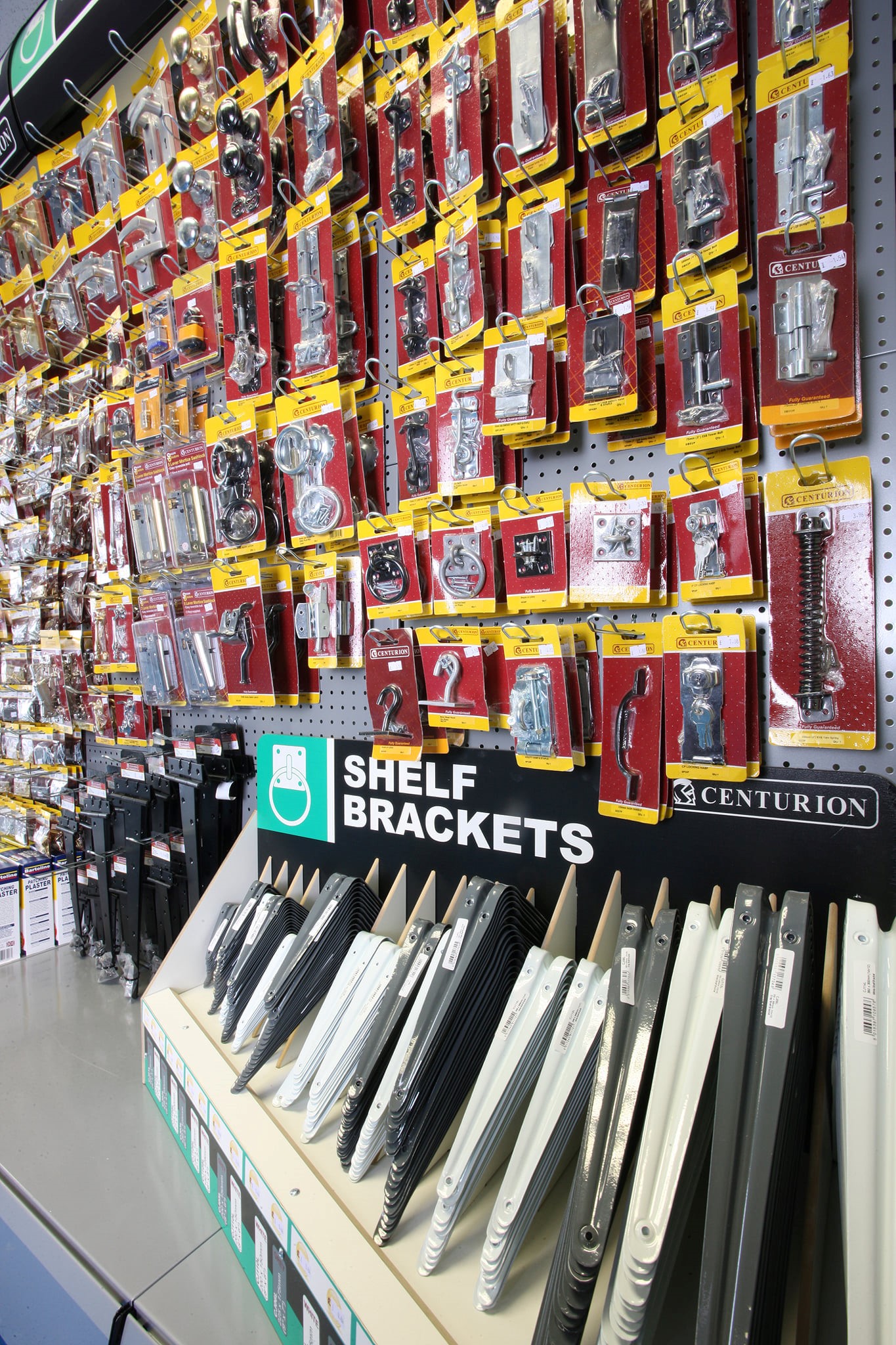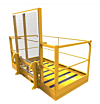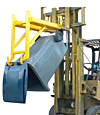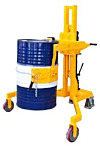
In today's competitive industrial landscape, the quality, reliability, and availability of industrial hardware can significantly impact operational efficiency, manufacturing productivity, and maintenance effectiveness. From essential fasteners and fittings to specialized components and accessories, industrial hardware forms a critical foundation for manufacturing, construction, engineering, and maintenance activities across the UK.
For procurement specialists, engineers, maintenance managers, and business owners, selecting the right industrial hardware supplier requires careful consideration of numerous factors, including product range, quality assurance, technical support, and supply chain reliability. This comprehensive guide explores the essential considerations for UK businesses when selecting industrial hardware suppliers for various applications.
Understanding the Strategic Importance of Quality Industrial Hardware
Before examining supplier selection criteria, it's important to recognize the multifaceted impact that quality industrial hardware provides:
Operational Reliability Enhancement
Proper hardware directly impacts equipment performance:
- Prevention of failures and breakdowns from substandard components
- Consistent operation under specified load conditions
- Appropriate corrosion resistance for environmental exposures
- Proper tensile strength and material properties for applications
Safety and Compliance Assurance
Quality hardware contributes to workplace safety:
- Load-rated components preventing accidents
- Proper certification for critical applications
- Traceability for regulated industries
- Compliance with relevant standards and specifications
Productivity and Efficiency Improvement
The right hardware supports operational excellence:
- Reduced downtime from component failures
- Faster maintenance through standardization
- Simplified replacement through consistent quality
- Enhanced assembly efficiency with appropriate components
Cost Management and Optimization
Strategic hardware procurement delivers financial benefits:
- Reduced failure-related costs through appropriate quality
- Lower inventory carrying costs through supplier consolidation
- Decreased emergency procurement premiums
- Lifecycle cost reduction through appropriate durability
"Quality industrial hardware represents far more than simple commodities—these components directly impact operational performance, safety, and profitability," explains Malcolm Hall, Managing Director at Hall-Fast. "The right supplier partnership ensures consistent access to appropriate quality hardware that meets specific application requirements."
Key Categories of Industrial Hardware
The diverse requirements of industrial applications necessitate various hardware categories:
Fasteners and Fixings
These fundamental components secure assemblies and structures:
Bolts, Nuts, and Washers
- Comprehensive range of thread types and dimensions
- Various material grades for different applications
- Specific coatings and plating’s for corrosion resistance
- Specialized options for high-temperature, vibration, or chemical exposure
Screws and Self-Tappers
- Wood, machine, and self-tapping varieties
- Various head types for different installation requirements
- Material options suitable for application environments
- Specialized thread designs for specific materials
Rivets and Blind Fixings
- Solid, blind, and structural rivet options
- Various materials for different substrate compatibility
- Installation tool compatibility
- Load ratings appropriate for applications
Anchors and Concrete Fixings
- Expansion, chemical, and mechanical anchor types
- Load ratings for different application requirements
- Installation options for various substrates
- Specialized solutions for specific construction methods
Material Handling Hardware
These components facilitate movement and organization:
Hooks, Shackles, and Lifting Gear
- Load-rated for specific lifting requirements
- Certified for safety-critical applications
- Various configurations for different lifting needs
- Appropriate material selection for environment
Chain, Wire Rope, and Accessories
- Grade-specific chain for load requirements
- Wire rope construction suited to applications
- Connection and termination components
- Certification for lifting and securing applications
Pulleys and Blocks
- Load capacity ratings for specific applications
- Bearing options for different operational requirements
- Environmental protection for varied conditions
- Mounting and installation variations
Casters and Wheels
- Load rating appropriate for application
- Material options for different flooring types
- Bearing selections for operating conditions
- Mounting plate configurations
Cabinet and Enclosure Hardware
These specialized components serve equipment protection needs:
Hinges and Pivots
- Various duty ratings for different door sizes
- Material options for environmental considerations
- Mounting configurations for different cabinet types
- Specialized options for specific access requirements
Locks, Latches, and Catches
- Security levels appropriate to application
- Keying and access control options
- Material and finish choices for environment
- Installation configurations for different enclosures
Handles and Knobs
- Ergonomic designs for user interface
- Mounting options for different door constructions
- Appropriate materials for operating environment
- Aesthetic considerations for visible applications
Gasketing and Sealing Components
- Environmental protection ratings (IP/NEMA)
- Material compatibility with cabinet construction
- Resistance to temperature extremes
- Chemical and UV exposure durability
Structural and Construction Hardware
These elements provide framework and support:
Brackets and Bracing
- Load capacity appropriate for application
- Material thickness and grade specifications
- Corrosion protection for environment
- Installation and mounting options
Pipe Fittings and Flanges
- Material compatibility with piping systems
- Pressure ratings for operational requirements
- Connection types for different applications
- Industry standard compliance (BSP, NPT, etc.)
Handrail Components and Systems
- Compliance with safety regulations
- Modular design for flexible installation
- Material options for environment
- Aesthetic and practical finish options
Framework and Modular Systems
- Load-bearing specifications
- Connection and joint components
- Adaptability and reconfiguration options
- Specialized profiles for specific applications
"The diversity of industrial hardware reflects the vast range of applications these components serve," notes Hall. "An effective supplier must offer both breadth of range and depth of expertise across multiple hardware categories."
Critical Factors in Industrial Hardware Supplier Selection
Several key considerations should guide supplier selection decisions:
Product Quality and Specification
Hardware performance standards significantly impact operations:
Material Standards and Certification
- Compliance with relevant British and European standards
- Material certification and traceability
- Independent testing and verification
- Quality management system certification (ISO 9001)
Manufacturing Quality Control
- Consistent dimensional accuracy
- Reliable mechanical properties
- Surface finish and coating quality
- Batch-to-batch consistency
Appropriate Grade Selection
- Material grades matched to application requirements
- Correct tensile strength classifications
- Appropriate corrosion resistance properties
- Suitable mechanical characteristics
Specialized Requirements
- Industry-specific certifications and approvals
- Special material requirements (non-magnetic, high-temperature, etc.)
- Custom or modified standard components
- Application-specific performance characteristics
Range and Availability
Consistent access to required components is fundamental:
Inventory Breadth and Depth
- Comprehensive range of standard components
- Stock in less common sizes and specifications
- Buffer stock of high-usage items
- Alternative options when specific items unavailable
Specialized and Uncommon Items
- Access to non-standard or specialized components
- Custom manufacturing or modification capability
- Sourcing network for unusual requirements
- Historical and obsolete component access
Lead Time Management
- Reliable delivery timeframes
- Express options for urgent requirements
- Transparent backorder processes
- Proactive communication on availability issues
Minimum Order Flexibility
- Small quantity availability for maintenance needs
- Economic bulk options for production requirements
- Mixed-order capability
- Packaging options suited to usage patterns
Technical Support and Expertise
Knowledge resources enhance procurement effectiveness:
Application Engineering Assistance
- Guidance on appropriate component selection
- Advice on material compatibility issues
- Support with load and stress calculations
- Problem-solving for challenging applications
Product Documentation and Resources
- Comprehensive technical specifications
- Installation and usage guidelines
- Material safety data and certification
- CAD models and drawings where appropriate
Training and Education Resources
- Product knowledge development support
- Installation best practice guidance
- Specification and selection training
- Standards and compliance updates
Problem Resolution Capability
- Root cause analysis for component failures
- Alternative recommendation expertise
- Quality issue investigation processes
- Continuous improvement approaches
Supply Chain and Logistics Performance
Efficient procurement processes reduce operational burden:
Ordering and System Integration
- Electronic procurement platform capabilities
- EDI and system integration options
- Efficient quotation and ordering processes
- Account management and support
Delivery Options and Coverage
- Nationwide distribution capability
- Next-day and express shipping options
- Reliable delivery timeframes
- Multiple site delivery management
Value-Added Services
- Kitting and assembly services
- Custom packaging for production environments
- VMI (Vendor Managed Inventory) options
- Consignment stock arrangements
Returns and Quality Issue Management
- Straightforward returns processes
- Prompt resolution of quality concerns
- Warranty management procedures
- Continuous improvement mechanisms
Industry-Specific Supplier Considerations
Different sectors present unique industrial hardware requirements:
Manufacturing and Production
These environments typically require:
- High-volume consistent quality fasteners
- Production-specific specialized components
- Just-in-time delivery integration
- Often VMI or lineside stock management
Common supplier approaches include:
- Kanban and lean inventory solutions
- Quality focused selection processes
- Integration with production scheduling
- Cost optimization through standardization
Engineering and Fabrication
These diverse operations need:
- Wide range of components for varied projects
- Often higher-grade specialized hardware
- Technical support for unique applications
- Material certification for client requirements
Typical supplier strategies include:
- Technical capability-focused selection
- Relationship development with application engineers
- Comprehensive documentation for quality assurance
- Specialized hardware for specific fabrication methods
Construction and Infrastructure
These project-based operations require:
- Construction-specific fixings and anchors
- Often site delivery and logistics management
- Compliance with structural standards
- Weather and environmental resistance
Effective supplier approaches include:
- Project-based procurement planning
- Site-specific delivery capabilities
- Structural certification and documentation
- Application-specific product training
Maintenance and Facilities Management
These ongoing operations need:
- Broad range of general hardware
- Rapid access for emergency repairs
- Often smaller quantities across many items
- Multi-site inventory management
Standard supplier strategies include:
- Breadth of range prioritization
- Next-day and emergency delivery options
- Consolidated supplier relationships
- Online and mobile procurement tools
Emerging Trends in Industrial Hardware Supply
The industrial hardware sector continues to evolve with several notable developments:
Digital Transformation of Supply Chains
Technology enhancing procurement efficiency:
- E-commerce platforms for simplified ordering
- Mobile applications for on-site procurement
- AI-powered inventory optimization
- Digital twins of supply networks for resilience planning
Sustainability and Environmental Focus
Growing emphasis on responsible supply:
- Eco-friendly packaging and reduced waste
- Sustainable material alternatives where appropriate
- Carbon footprint reduction in manufacturing and logistics
- Circular economy approaches to industrial hardware
Advanced Materials and Innovations
New technologies improving performance:
- Composite and hybrid material fasteners
- Enhanced corrosion protection technologies
- Weight reduction through advanced design
- Specialized coatings for extreme environments
Supply Chain Resilience and Localization
Response to recent global disruptions:
- Increased UK and European manufacturing
- Stock buffer strategies for critical components
- Dual-sourcing for supply assurance
- Transparency and traceability throughout supply chain
Comprehensive Supplier Evaluation Framework
Beyond basic selection criteria, a systematic evaluation approach includes:
Performance Metrics and Measurement
Quantifiable assessment criteria:
- On-time in-full delivery performance
- Price competitiveness and stability
- Quality metrics and rejection rates
- Technical support responsiveness
Total Cost of Ownership Analysis
Looking beyond purchase price:
- Quality impact on maintenance requirements
- Process efficiency through appropriate components
- Inventory carrying cost optimization
- Administrative efficiency in procurement
Risk Assessment and Management
Evaluating potential supply vulnerabilities:
- Financial stability and business continuity
- Geographical and logistical considerations
- Single-source risk mitigation
- Capacity constraints and scalability
Partnership and Development Potential
Future-focused relationship assessment:
- Continuous improvement capabilities
- Innovation and product development
- Strategic alignment and collaborative potential
- Responsiveness to changing requirements
Getting Expert Assistance with Industrial Hardware Suppliers
Given the complexity of industrial hardware requirements and the significant impact on operations, many UK businesses benefit from expert guidance. Working with knowledgeable suppliers can help navigate the often confusing array of options to find solutions that balance quality, availability, technical support, and cost-effectiveness.
Hall-Fast offers comprehensive solutions for industrial hardware, including product selection guidance, inventory optimization, and ongoing supply management. Their team understands the unique challenges faced by UK industrial operations and can help develop hardware procurement strategies tailored to specific business requirements.
For additional assistance in selecting and managing the right industrial hardware for your operations, contact a specialist at Hall-Fast via sales@hall-fast.com or visit their industrial commercial equipment page for more information on available products and solutions.
With the right approach to industrial hardware supplier selection, UK organizations can achieve significant improvements in operational reliability, maintenance efficiency, and procurement effectiveness—while ensuring their hardware needs are met with consistent quality, availability, and value.












